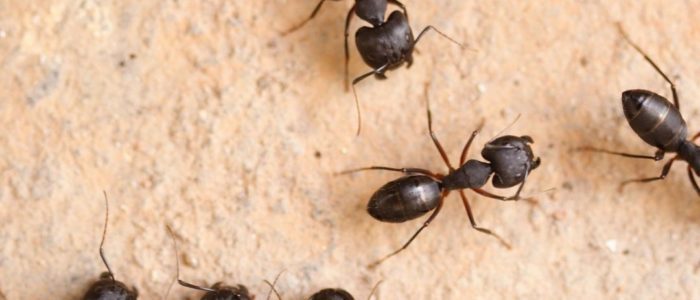The Life Cycle Of An Ant Colony
Ant colonies can be considered organisms onto themselves. They are born, they grow, they reproduce, and eventually they die.
All colonies start with a single queen. The queen is initially part of the reproductive caste of a mature colony, and at this point, it has wings. You may have seen winged ants flying around – those winged ants are actually young kings and queens flying out of a mature colony in order to mate and start their own nests. Most of them will die however, and only a few queens will be able to successfully mate and dig out an initial birthing chamber.
These initial stages of the colony are very difficult as well. The young queen will lay a few eggs in the nest, and then start foraging for food. After the eggs hatch, the queen will have to take care of the brood until they reach maturity, but once they do, the queen will take on a purely reproductive role, and the workers will start taking care of everything. It is at this stage that the colony is as safe as it can be, and it is likely that it will succeed, grow to maturity, and then begin its own reproductive cycle.
When it comes to control, this information is important because it shows why the queen needs to be targeted. Without the queen, the reproductive capacity of the colony is gone. As such, either direct application insecticides or baits are used. Direct application insecticides are exactly what they sound like – they are insecticides which are applied directly to the colony. The insecticides then seep into the earth and eventually reach the queen and kill it.
These insecticides have the disadvantage that they can only be used when the colony is out in the open. When the colonies are hidden however, baits will be used instead. Baits work on a simple concept – some form of food that is preferred by ants, is laced with a slow-acting insecticides. The ants will pick up the poisoned food and start to share it around the colony. Eventually the bait will reach the queen and kill it, thus destroying the colony. Baits can also be used as a prevention method, by ensuring that young colonies eat the bait early on and are destroyed before they get too big. Contact us today for more information on how ant infestations are controlled, or if you require ant control services.


Comments are closed.